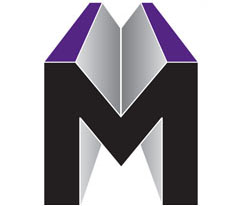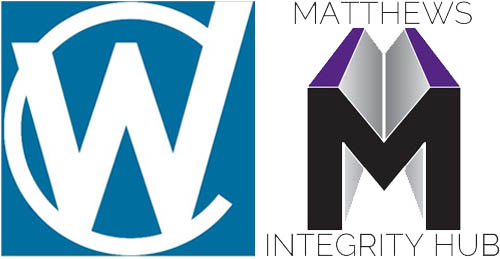INTERVIEWS FOR SOURCE INSPECTION (SI) ROLES
Here are some tips and sample technical interview questions relating to Source Inspection (SI) jobs in the integrity industry. The Matthews Integrity Hub:HEAD OFFICE website contains a series of these, relevant to different jobs in the industry. Before you read the individual sets, first have a read through our short introductory articles Technical interviews in the world of asset integrity and Integrity job technical interviews; some facts to help put them in context.
What jobs are we talking about?
In this category, it’s source (new construction) inspection jobs, comprising mainly factory visits to inspect items under manufacture. The scope is mainly static (pressure and structural) equipment but there are also more specialised roles for rotating equipment and electrical equipment.
The technical role
The role of the Source Inspector (SI) is a technical one. Duties consist of
- participating in the steps of the inspection and test plan (ITP), namely, quality surveillance
- witnessing tests (of many types)
- accepting or rejecting test results against purchase specification and code requirements
- compliance (and non-compliance) reporting and final acceptance of manufactured equipment.
These four elements fit together to make up the overall picture of compliance of the equipment or system against its specified requirements. These activities are linked together by the Inspection and Test Plan (ITP). This is prepared by the contractor/manufacturer and approved by all of the other parties involved. It provides the central procedure document for the inspection-related activities of the manufacturing stages of the equipment. For ASME code equipment, full completion and acceptance by the necessary parties of the ITP culminates in the issue of the ASME-code-specified manufacturer’s data report (MDR).
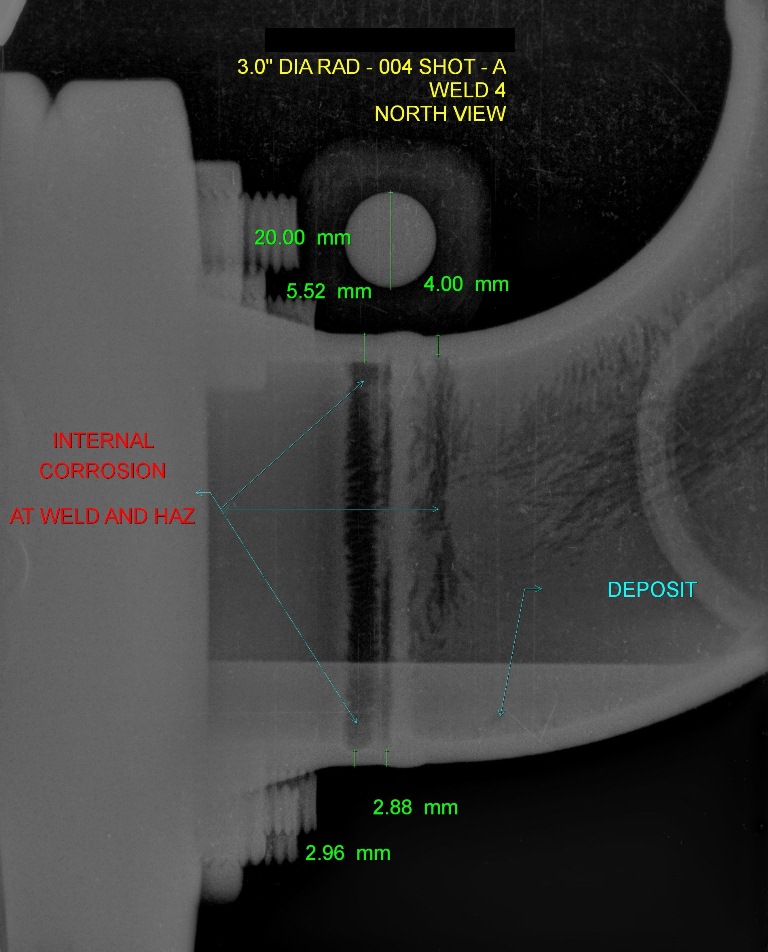 Source inspectors witness tests
Source inspectors witness tests
The technical role of the SI includes witnessing tests. There are many types, but common ones are
- material tests, for mechanical properties of parent material or welds
- non-destructive tests/examinations (NDE)
- pressure tests
- functional tests, on valves, for example.
Tests normally follow some kind of written procedure to make sure they are done properly. Some tests are just simple visual and dimensional checks against weld maps, weld specifications or construction/general arrangement (GA) drawings. Others are more complicated, requiring specialist test equipment in the laboratory or workshop.
Source Inspector (SI) job interview questions; what to expect
In our Integrity job technical interviews; some facts article, questions used in technical interviews were considered to be made up of categories or ‘quadrants’, as shown below;
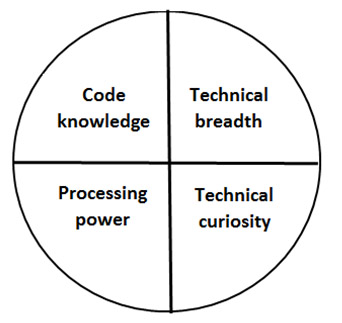
For SI jobs all four of these quadrants are relevant, but with the lower two linked mainly to inspections of the more complicated equipment types. Let’s look at some good SI technical interview questions ;
Question 1. Construction code knowledge
Question. Can you explain any connections between the source inspection requirements of ASME VIII-1 vessels and those of other unfired pressure vessel codes?
This is a good test of an inspector’s knowledge of:
- What do ASME VIII-1 and other codes (e.g. EN13445 or PD5500) actually say about inspection during manufacture.
- The ASME system of having a National Board Authorised Inspector (AI) monitoring construction, compared to the Notified Body (NoBo) system used in EU countries
It’s a good technical question which can expand into any of the specific technical areas of source inspection such as material testing, welding, pressure testing or certification. As a candidate this is what you want, to allow you to choose which areas of your knowledge to discuss. From an employer’s perspective, if a candidate has no answer at all to this question, then they don’t know much about either pressure vessel codes or vessel source inspection.
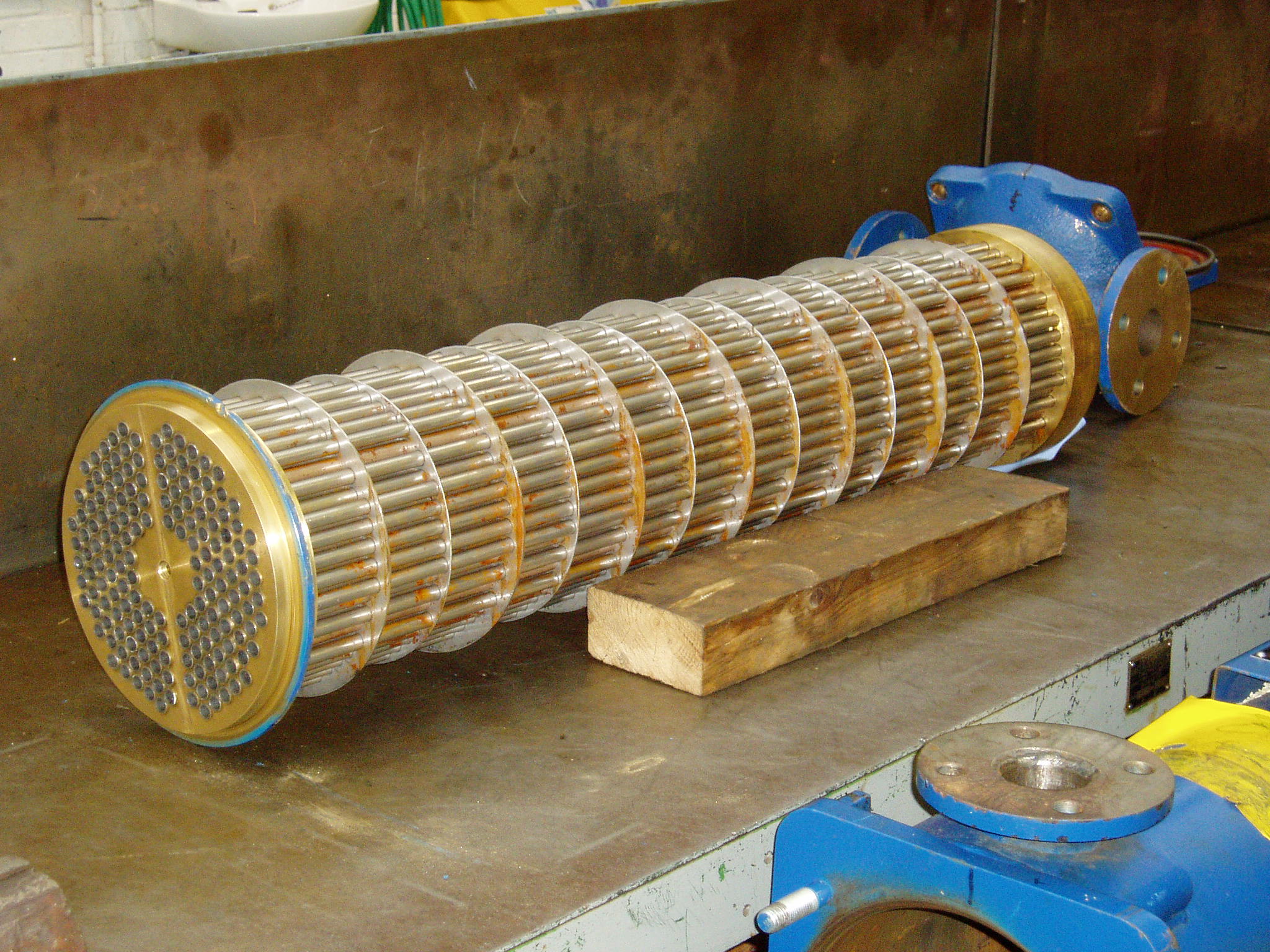
Question 2. Technical breadth: Pressure testing
Question. What are the hydrostatic pressure test requirements of ASME VIII-1 or a similar construction code, and what safety arrangements are required during the test?
This is a good test of an inspector’s knowledge of the subject of pressure testing, which applies to most types of pressure equipment manufacture. It also gives an opening into discussing safety of pressure testing; an important precaution for source inspectors. Good answer responses would include discussion of:
ASME Code requirements
- Minimum hydrostatic test pressure being 1.3 x MAWP in an ASME VIII-1 vessel (with MAWP referenced to the top of the vessel)
- Maximum hydrostatic test pressure is limited to avoid general yielding/excessive strain
- Minimum test temperature requirements (above MDMT) to avoid brittle fracture during the test
- The use of fluids other than water for hydrostatic testing (e.g. oil with suitable flash-point etc)
- Pressure relief arrangements in the test circuit
Other safety requirements (source: HSE CRR 168/GS4, OSHA documents etc)
- Personnel exclusion zones/blast protection during testing
- Dangers of screwed fittings in the test circuit
- Appointment of a test supervisor
Note that a vessel construction code is referenced in the question. This could be broadened out to include pipelines, storage tanks or valves, but remember that the construction code requirements for pressure testing these components have differences to those for vessels
Question 3. Processing power: Material substitutions
Question. In source inspections it is common to find that the manufacturer has not used the specified material designation for some components but has used a material which they claim is equivalent or better. How would you decide if such a claim was true, and which material properties would you check, and how?
To answer this question well requires good knowledge of the mechanical properties of materials as given on material certificates. It’s not just the individual properties that are important but how they are tested, and how they influence each other. The most common ones are
- Material strength; yield/tensile/proof
- Ductility
- Impact (Charpy) resistance
- Surface hardness
Typical mechanical Tests are:
- Flattening tests (for tubes)
- Bend tests
- Charpy/Izod impact tests
- Crack opening displacement (COD) tests (specialist)
- Simple 2-D tensile tests
- 3-D tensile tests (rare, but sometimes done)
Note that the question specifically asks about mechanical properties and their tests, not material chemical composition. Chemical analysis is not the sole determinant of mechanical properties as these are also affected by material form, thickness and heat treatment/finishing processes.
Good materials knowledge is a prerequisite for SIs
Question 4. Technical curiosity
Remember the definition of ‘technical curiosity questions. If a candidate has technical curiosity about the subject of source inspections then they will find it fairly easy to widen their knowledge and experience. They will also adapt to source inspections on equipment they haven’t seen before without it being too much of a problem. It is their technical curiosity that makes people look at new construction and post-construction codes, read failure cases and keep on top of inspection methods as they evolve over time. Technical curiosity is one of the easiest things to test for during integrity job interviews; if a candidate has it, it will shine through of its own accord fairly quickly. If it doesn’t, and doesn’t appear in response to a few well-placed questions, then it’s probably not there.
Here’s the question.
Question: Can you explain how the source inspection of a pressure vessel would differ from that of a large fabricated workshop crane?
Here are some of the answers that could apply
- The key parts of a crane’s structure are frequently designed to similar requirements to pressure vessel codes e.g. material choice, validation, fabrication, welding, NDE, certification etc
- Crane rotating parts are designed to various ‘machinery classes’ suit the severity of their duty. This is similar to having different ‘classes’ of pressure vessel.
- There will be the additional requirement for a FAT (Factory Acceptance Test) of the rotating and moving components
- Cranes do not require hydraulic pressure tests but they may require a 125% SWL ‘proof overload’ test, which includes measurements of deflections and watching for yielding.
Even if a source inspector has never inspected a crane, they should know what a workshop crane consists of, because they’ve seen them in vessel manufacturing works. Many other subjects could be used; pipelines, valves, storage tanks, boilers, road tankers etc, bridges etc, as long as the basic inspection principles are similar. Peripheral questions like this are a good test of technical curiosity.
THE API SIFE CERTIFICATION
Did you know there is a new API certification examination of specific relevance to Source Inspectors? It is the Source Inspector Fixed Equipment (SIFE) certificate, with its accompanying exam. The body of knowledge set by API for the SIFE examination is large, diverse and widespread. It uses codes and published documents from five different organisations;
- American Petroleum Institute (API)
- American Society of Mechanical Engineers (ASME)
- American Welding Society (AWS)
- American Society of Non-destructive Testing (ASNT)
- Society for Protective Coatings (SSPC)
DO YOU HAVE ANY QUESTIONS ABOUT API SIFE?
You can check out general details of the API SIFE programme on our API Certifications page .If you have any specific questions about the operation of the API SIFE Certificate Programme or its relevance to your situation, just contact us from our How can we help you? link and we will try to help you out.
We offer a TRIAL TECHNICAL INTERVIEW
If you want to check your knowledge for a specific job role in the integrity industry then try our trial technical interview. Its purpose is to test you on the technical aspects of the job you are thinking of applying for. There’s no time limit on it but expect it to last at least 20 minutes. After the discussion we’ll give you honest feedback on how you did. Just let us know the type of position you are going for; we’ll do the rest and respond with at time slot for you to call us.
There’s no charge, but we will expect you to call us at the allocated time and be ready to answer technical questions.
Remember your trial interview is on a purely technical subjects. We are not interested in you personality traits, do-gooding activities or any wonderful extra-curricular interests you may have.

